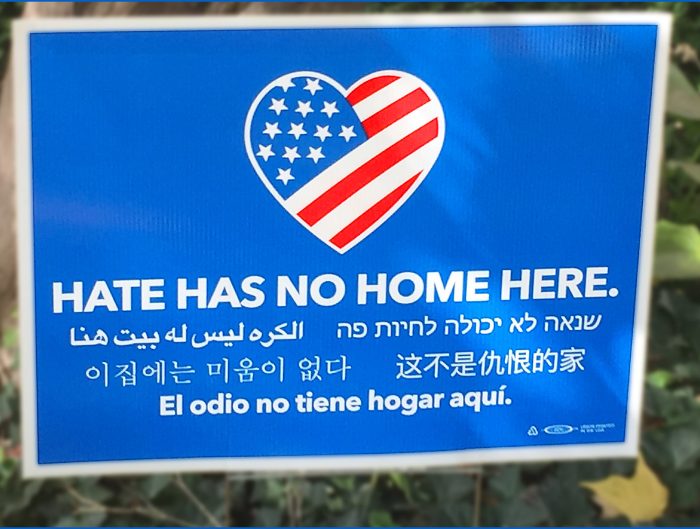The following represents my personal views and not those of Capital Good Fund, its Board of Directors, or staff
As the Founder and CEO of a nonprofit, I have to be careful about any political statements I make. This is true not only because a 501(c)(3) tax-exempt organizations are required to be nonpartisan, but also because some of our funders likely support candidates and policies that do not align with my progressive politics. This is not to say that either I or Capital Good Fund have been silent in the Trump era: we spoke out against child separations at the border and the so-called Muslim Ban, and nearly all of my poetry touches on the theme of social justice. But even when taking a stance on issues that so clearly call for moral opposition, I have received pushback from people who are afraid that I might jeopardize the funding streams we rely on; they they may be right says a lot about the moral cowardice of the rich and powerful.
The relentless onslaught of lies, crime, bigotry, and corruption over the past four years has put nonprofit leaders, small business owners, teachers, and others who cannot afford to alienate their stakeholders in the position of having to pretend that the abominable is not transpiring. We attend conferences on poverty alleviation and listen to members of the administration speak about their commitment to justice, smiling politely as though the President and his Cabinet weren’t robbing the American people blind right in front of our eyes. We issue anodyne statements encouraging everyone to vote, alluding ever-so-obliquely to the reality that the President is brazenly trying to suppress the vote of his opponents. And we give lectures about the history of racism, barely hinting at the reality that Donald Trump is openly racist.
I’ll never forget how, on November 9, 2016, I walked into a meeting with a local banker and expressed my disbelief at what America had just done. “Give Trump a chance,” he replied, dismissing my fear as hyperbolic. “Things weren’t that great under Obama, you know.” His primary complaint was that the Dodd Frank Act had placed onerous regulations on the financial sector, comparing a banal policy disagreement to the elevation of a proto-fascist to the presidency. After all that we have witnessed these past four years, I derive no pleasure from saying I told you so. (Though to be fair to the banker’s concerns, financial regulations have been eviscerated under Trump, to the benefit of bank executives and shareholders.)
Capital Good Fund’s tax status does not allow us to endorse a candidate, but we are taking steps, on a nonpartisan basis, to help people vote, such as partnering with Vote Forward to encourage our supporters to write letters to under-represented voters and making election day a holiday for our employees. Although we are a lender, supporting a free and fair election is a logical extension of our work, for it is impossible to achieve our mission if we do not have a democracy in which everyone fully participates; the most disenfranchised citizens are the low-income, marginalized people we serve.
As the election draws near, I find myself wondering what it means to be nonpartisan these days. After all, only one political party has made it harder for millions to vote because of supposed concern for voter fraud, which has incident rates of between 0.0003 and 0.0025 percent. And only one political party aids, abets, or condones the litany of outrages—ignoring bounties on U.S. troops, encouraging violence, failing to address a pandemic, coercing a foreign government to interfere in yet another election, profiting off the presidency, tear gassing peaceful protestors for a photo op—to which this nation has been subjected. We ignore this reality at the risk of lying to ourselves.
When the dust finally settles on this traumatic era, I fear we will wake up to realize that what we had praised as bipartisan, nonpartisan, or apolitical was little more than self-serving complicity.




Leave A Reply